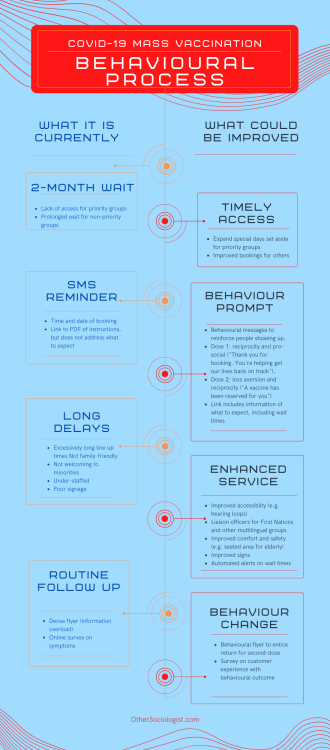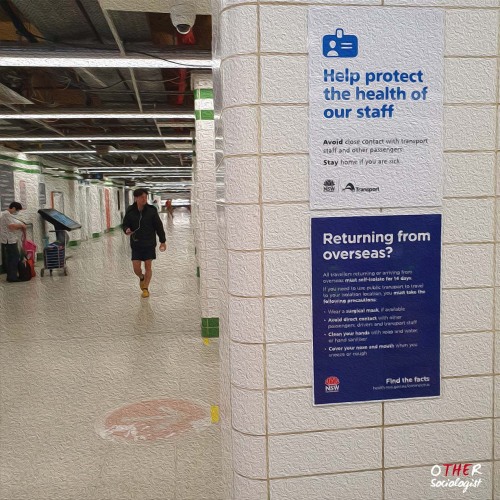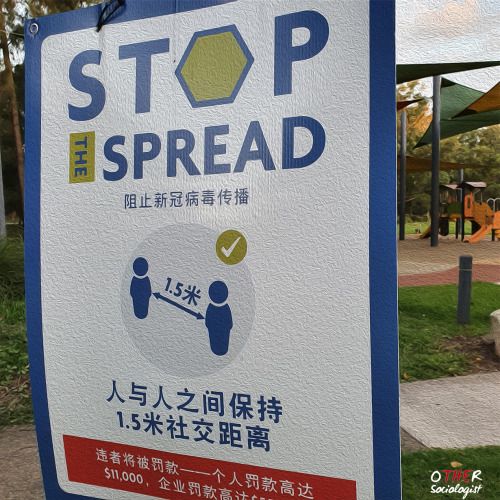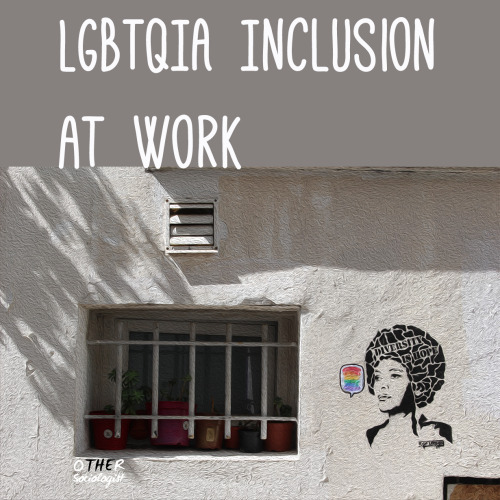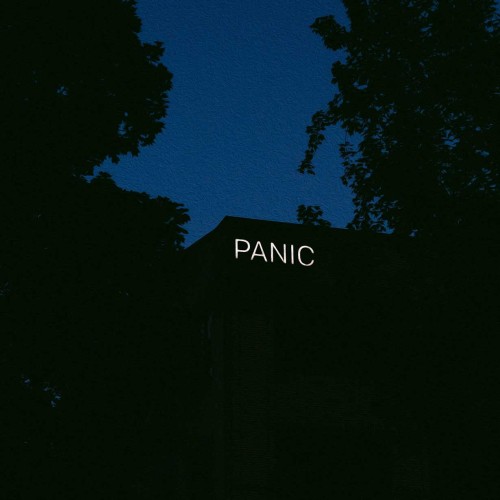#social science


ive had a nice little break between deadlines which has given me a chance to really focus on my last exam of the year, for my soviet experiment module. i’d always take a coursework style essay over an exam (even open book like this one will be), but at least getting a choice of questions means i get to pick the areas to focus on in revision. as you can tell (if you can read my handwriting), i tend to be drawn to social histories more than anything else, so i’m hoping some good questions come up!


my 48 hours us gov and pol exam starts in 20 mins!! ive been nervous for it because with other deadlines so close together it’s been tricky to give it as much time as i’d have liked, but this morning i’ve gotten up, done some pilates, showered, had a nice bowl of porridge and read thru my notes, and i’m ready to take my best shot at it. wish me luck!!

got a big day of essay writing today, determined to do well on this one so i’ve spent what feels like forever planning it and now i’m finally ready to write it all up!
I need some advice! Does anybody run/contribute to an online blog? Me and a friend are thinking of putting something together for mini essays/articles/thoughts, but honestly I don’t have a clue where to start and any tips would be amazing!
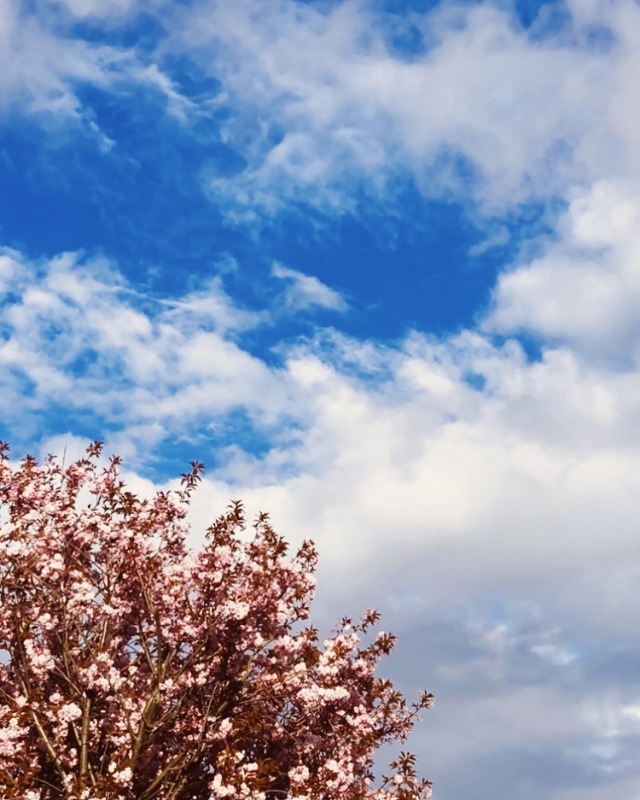
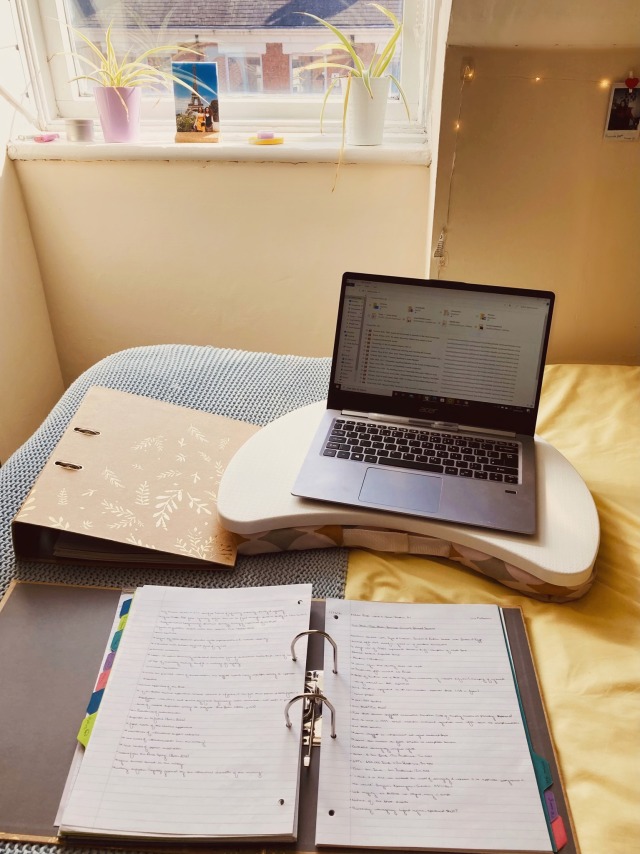
back at my uni house! so good to be back and getting lots more work done, which is a relief since exams are nearly here! newcastle weather means blue skies one minute and heavy rain the next, but i’m enjoying being able to go for walks more often than last term now the evenings are warmer and lighter
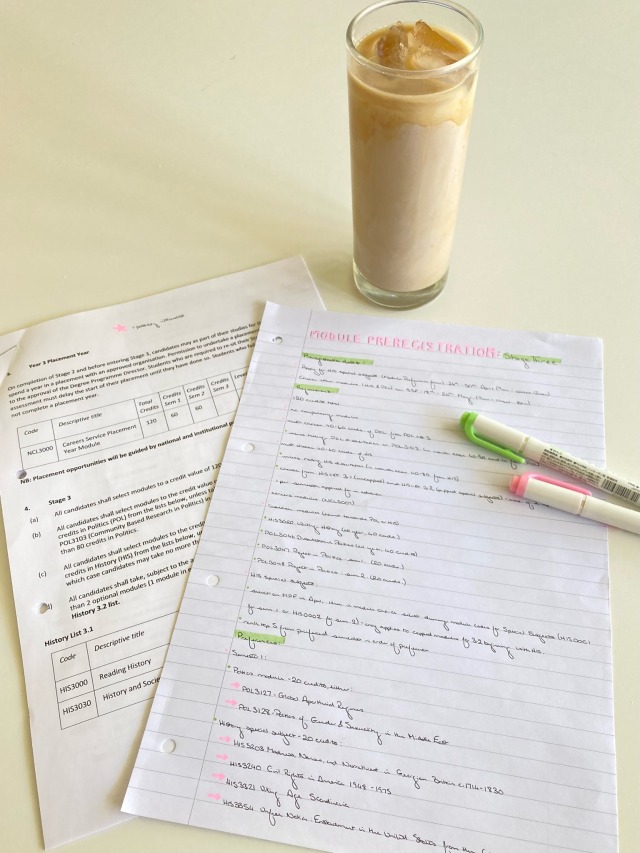

module selection for stage three is creeping up, so i spent most of yesterday trying to wrap my head around the very specific regulations and pick modules to balance my credits properly! finally managed to put together a balance that will work and i’m so excited for preregistration to go ahead, there are some great options that i’m so excited to take!!


exams are coming up!! spent most of today enjoying the sun (16° and sunny in england in april?? practically barbecue weather) and drawing up a plan of the next few months until the end of the semester to help visualise how long i have until deadlines. naturally this stressed me out so i spent an hour or two looking at past papers and guidance for one of my exams to feel a bit more prepared! how are other people feeling about exams?

TSC Sociologist, Valerie Chepp, recently published a new edited volume titled, “Readings in Social Justice: Power, Inequality, and Action.” A particularly poignant excerpt is from bell hooks’s “Engaged Pedagogy” https://titles.cognella.com/readings-in-social-justice-9781793527677
In academic circles, we have a half-joking-but-not-really saying: “All Research Is Me-Search,” and Leigh Cowart’s new book has taken that dictum to titanic new heights and visceral, evocative depths.
Cowart is a former ballet dancer, a biologist who researched Pteronotus bats in the sweltering jungles of Costa Rica, and a self-described “high-sensation-seeking masochist.” They wrote this book to explore why they were like this, and whether their reasons matched up with those of so many other people who engage is painful activities of their own volition, whether for the pain itself, or the reward afterward. Full disclosure: Leigh is also my friend, but even if they weren’t, this book would have fascinated and engrossed me.
Hurts So Good is science journalism from a scientist-who-is-also-a-journalist, which means that the text is very careful in who and what it sources, citing its references, and indexing terms to be easily found and cross-referenced, while also bringing that data into clear, accessible focus. In that way, it has something for specialists and non-specialists, alike. But this book is also a memoir, and an interior exploration of one person’s relationship to pain, pleasure, and— not to sound too lofty about it— the whole human race.
The extraordinarily personal grounding of Hurts So Good is what allows this text to be more than merely exploitative voyeurism— though as the text describes, exploitative voyeurism might not necessarily be a deal-breaker for many of its subjects; just so long as they had control over when and how it proceeds and ends. And that is something Cowart makes sure to return to, again and again and again, turning it around to examine its nuances and infinitely fuzzy fractaled edges: The difference between pain that we instigate, pain that we can control, pain we know will end, pain that will have a reward, pain we can stop when and how we want… And pain that is enforced on us.
Read the rest of “Review: Hurts So Good: The Science and Culture of Pain on Purpose, by Leigh Cowart”atTechnoccult.net
In 2007, María Sumire led new legislation to implement Article 48 from the Peruvian Constitution. Law 29735 introduces individual rights on the use, preservation, growth, recuperation, and diffusion of Indigenous languages. A public information campaign promoted the new laws (“Speak your language, it’s your right). The law facilitates regulated access to an interpreter when accessing social services, new public service hiring laws, and targeted bilingual education policies.
Cusco, Ayacucho, and other Indigenous regions funded not-for-profits to improve language services, schools were mandated to teach Quechua and other local Indigenous languages, and courts and other public services also incorporated bilingual processes.
In Cusco, Quechua is an official regional language, meaning that public servants must speak at least basic Quechua. It has one of the largest budgets and governance structures, due to high revenue from tourism, allowing the region to invest in Quechuan language autonomy.
Post link
The Economic and Social Costs of COVID-19
This is the last in this series about Race and COVID-19. Our panel looks at the impact of the pandemic on undocumented migrant workers, whose labour is exploited in Australia. The economy depends upon the work of racialised people, exposing them to high risk through the casualised frontline services that have kept the health system, and other businesses, going during lockdown. At the same time, racialised people are provided inadequate protections against infection, including poor personal protective equipment. Racialised people in general are disproportionately employed in sectors that have the highest rates of Coronavirus, including in hospitals, factories and abattoirs, where they are given little workplace rights, including sick leave. In other cases, migrant workers and international students were left without a safety net when Australia went into lockdown. They were simply told to go home, or else make do without the economic subsidies available to other Australians, even though for many of these migrants, Australia is their home.
Our panellists talk about the ‘punitive immigration policies’ which have impacted undocumented workers during the Coronavirus crisis, and how the theory on ‘curated storytelling’ plays out in race dynamics during the pandemic.
Panellists
Sanmati Verma is an Accredited Specialist in Immigration Law. She has practiced exclusively in the area of migration law since her admission to practice in 2010. She is a migrant rights activist and immigration lawyer with the United Workers Union and the Migrant Workers Centre. In addition to her practice, Sanmati conducts regular community legal education and training seminars in refugee and migration law. She is currently a member of the Law Institute of Victoria’s ‘Legacy Caseload Working Group’ and was previously the chair of the Refugee Law Reform Committee. Sanmati was nominated for the Law Council of Australia’s award for Young Migration Lawyer of the Year in 2014 and 2015.
Sujatha Fernandes is a Professor of Political Economy and Sociology at the University of Sydney. Previously she was a Professor of Sociology at Queens College and the Graduate Center, City University of New York. Fernandes is the author of Cuba Represent! Cuban Arts, State Power, and the Making of New Revolutionary Cultures (Duke University Press, 2006), Who Can Stop the Drums? Urban Social Movements in Chávez’s Venezuela (Duke University Press, 2010), Close to the Edge: In Search of the Global Hip Hop Generation (Verso, 2011), and Curated Stories: The Uses and Misuses of Storytelling (Oxford University Press, 2017). Her latest book is The Cuban Hustle: Culture, Politics, Everyday Life (Duke University Press, 2020). She is an editorial board member of Transition: The Magazine of Africa and the Diaspora.SHOW LESS
COVID-19 mass vaccination behavioural process
From participant observation research conducted in late July to mid-August.
- Wait times for bookings at the Sydney mass vaccination site are up to two months for non-priority groups
- Despite holding pre-scheduled appointments, on the day, the public lines up outdoors for up to two-hours. This makes for a physically uncomfortable and de-motivating experience
- Behavioural barriers during the mass vaccination experience may impact people’s willingness to return for their second dose in a timely way. For example:
- the line-up system is confusing
- it’s hard to hear staff directions
- inadequate accessibility
- lack of social distancing outdoors
- few signs and instructions
- lacking cultural safety for Aboriginal and Torres Strait Islander people
- poorly promoted multilingual services for migrants
- insufficient communication about extended wait times mean people may not be properly prepared to stand in line for so long
- Behavioural science evidence could be used to improve the customer service experience, by:
- improving physical cues, to encourage COVID-19 safe behaviours, and
- using behavioural messages to motivate customers to return for their second vaccination dose on time.
Read more on my blog.
[Image: Infographic on COVID-19 Mass Vaccinaton Behavioural process. On the left, what it is currently: 2 month wait, routine sms, long delays, routine follow-up. On the right what could be improved: timely access, behavioural prompt, enhanced service]
Post link
Lockdown, Healthcare and Racist Ableism
In Episode 4 of our Race in Society series, Associate Professor Alana Lentin and I spoke with three health experts to unpack how racist ableism drives the management of lockdown and healthcare during the pandemic. Ableism is the discrimination of disabled people, based on the belief that able-bodied people (people without disability) are superior, and the taken-for-granted assumptions that able-bodied experiences are “natural,” “normal” and universal. Racist ableism describes how ableism intersects with racial discrimination (unfair treatment and lack of opportunities, due to ascribed racial markers such as skin colour or other perceived physical features, ancestry, national or ethnic origin, or immigrant status).
In “Lockdown, Healthcare and Racist Ableism,” we explore the ways in which Aboriginal and Torres Strait Islander people living with disabilities can be better supported in the health system, how to establish cultural safety during the pandemic, and what an anti-racist response to healthcare might look like.
First, we spoke with June Riemer, the Deputy Chief Executive Officer of the First Peoples Disability Network. She discussed the Network’s advocacy on the Royal Commission into Violence, Abuse, Neglect and Exploitation of People with Disability, and the impact of COVID-19 on Aboriginal people with disability. Second, Associate Professor Lilon Bandler is a Principal Research Fellow for Leaders in Indigenous Medical Education Network. She spoke about cultural safety and the imposition of heavier restrictions on racial minorities during lockdown. Finally, Dr. Chris Lemoh is an infectious disease expert and general physician at Monash University Health. He discussed his advice to the Victorian Department of Health and Human Services, after the Department put nine social housing towers in Melbourne under heavily armed police lockdown. The majority of these residents were migrants and refugees. No other neighbourhood was policed in Melbourne in the same way.
These patterns are now being repeated in Sydney. Eight multicultural suburbs have been put into a “hard lockdown,” including visits by police and military personnel. To see how our guests’ work still resonates in the current context, watch our video, and read a summary below.
Post link
Policing Public Health
Without warning, on 3 July 2020, the Victorian Government placed 3,000 people living in nine social housing towers into a police-enforced lockdown. They aimed to contain the spread of COVID-19 infection by targeting disadvantaged migrants who were in a dependent relationship with the state (social housing tenants live in buildings owned by the Government). Ultimately, this racial targeting did not work. The entire state of Victoria was still placed into lockdown, which lasted almost four months.
The Melbourne example shows police-enforced segregation of multicultural communities is an ineffective public health model. It is therefore profoundly concerning that such recent history is currently being repeated in Sydney almost exactly one year later.
Announced suddenly on 30 July 2021, police and the military have been deployed into eight multicultural suburbs in South West and Western Sydney, to enforce lockdown through door-to-door visits. Military personnel are not mandated to be vaccinated. This show of state force was not used in previous outbreaks involving white, middle class people in the Northern Beaches, or at the start of the present lockdown, in Bondi.
Heavily policing public health in places where Aboriginal people, migrants and other working class people live sends a damaging message to those communities. There are potential health risks with this plan, including to mental health and safety.
Let’s reflect on some of the lessons from Melbourne, and then explore how racist ableism is operating in the current “hard lockdown” of select multicultural suburbs in Sydney.
Post link
Race, Class and the Delta Outbreak
Three states in Australia are presently under a strict COVID-19 lockdown: New South Wales, Victoria, and South Australia. New South Wales is experiencing a major Delta variant outbreak, which is highly contagious. It has spread to the other states through working-class workers, who do not have the luxury of working from home. Similarly to what happened in the harsh Melbourne lockdown in 2020, residents in migrant communities have been placed into a tougher lockdown relative to others, even as they are required to continue working, and submit to COVID testing every three days (“surveillance testing”).Public discourse about the COVID-19 outbreaks continues to be racially coded in media articles and in press conferences. This contributes to a moral panic about racialised people. Blame is placed on multicultural communities for not listening to public health messages, even though the majority of cases originate in ‘essential’ workplaces that are not required to shut down. As some communities remain confused about public health messages, state responses have been heavily criticised for not promoting culturally-appropriate public communication campaigns, while targeting migrants with a heavy police presence.
[Iarge: entrace to supermarket. Stickers on the ground say “Please stand here”]
Post link
Media Representations of Race and the Pandemic
In Episode 3 of Race in Society (video below), Associate Professor Alana Lentin and I lead a panel about how mainstream media create sensationalist accounts of the pandemic, and the proactive ways in which Aboriginal people and Asian people in particular lead their own responses. We spoke with Dr Summer May Finlay, a Yorta Yorta woman and Public Health Researcher at the Universities of Wollongong and Canberra. In our video below, she details how Aboriginal community controlled health organisations have effectively dealt with COVID-19 using social marketing campaigns. We also chatted with Dr Karen Schamberger, an independent curator and historian. She covers the history of Australian sinophobia (the fear of China, its people and or its culture), and how anti-Chinese racism plays out in media reports on racism and the COVID-19 pandemic. This issue remains pertinent, given that the suburbs currently under strict lockdown in Sydney have relatively large Asian populations.
Post link
Applied Sociology of Qualifications
Our research shows that more apprentices and trainees will complete their training if students are given six behaviourally informed SMS prompts. Messages provided timely and practical advice on workplace rights, and where to seek support if they were struggling. Our results equate to 16% fewer learners dropping out. Our intervention led to a 7:1 return on investment.
Post link
Ending discrimination against gender and sexual minorities requires major social transformation. Institutional change is paramount. As you keep fighting to make your organisation accountable, here are three small but impactful things you can do at your workplace to end this form of discrimination.
[Image: paste up of a woman that reads “diversity is hope”]
Post link
Interview: The Folk Devil Made Me Do It
Here’s an excerpt from my interview on NPR’s Code Switch on moral panics about critical race theory.
ZULEYKA ZEVALLOS: Moral panics are hooking into something that seems new or novel or something that’s topical, but it’s hooking into old debates, an idea that this new thing that’s happening could spell the end to our society to the way in which we live…
GENE DEMBY: ….Moral panics are a sociological phenomenon. And it turns out there are quite a few academics who study them and how they work, like Zuleyka Zevallos. She’s a sociologist and a policy researcher in Sydney, Australia. And relevant to our interests here on CODE SWITCH, Zuleyka studies moral panics and what they have to do with race. And she told me that moral panics tend to have some broad things in common.
ZEVALLOS: So there are effectively three components to a moral panic. The first is that the threat is perceived as new, but it’s been linked to old notions of other things that society has been afraid of in the past…
DEMBY: The second component of a moral panic, Zuleyka told me, is that whatever the current thing that people are freaking out about is seen as both damaging by itself, right? But also, it is seen as a harbinger of some deeper, potentially more dangerous societal problem. So go back to video games again. Video games were thought to represent a new permissiveness around violence. You know, so many games focus on fighting and shooting and Mario Karting. People will blame video games for things like school shooting and rising violent crime. There was even a congressional hearing about the specific dangerous posed by video games in the 1990s.
ZEVALLOS: And then the third component is that it needs to be an issue that lots of people can see, but the threat seems difficult. It seems opaque.
DEMBY: So it has to be something that people can point to, like something that exists in the world, again, but that if you’re on the outside of it, you can’t quite make sense of it – at least not on your own.
ZEVALLOS: It means that the general public are relying on experts to explain what’s happening to them.
Post link
Policing the Quarantine
Heavy-handed policing was deployed in response to the Covid-19 outbreak in the nine tower blocks in Melbourne where residents are mainly Black, Brown and Asian. Fines have been administered more in suburbs where the Aboriginal and Torres Strait Islander and/or migrant population is higher. But, the same logics of colonial policing used for over 200 years are also affecting other groups at a time when a policing, rather than a public-health oriented, response to the pandemic is being rolled-out by state governments with the use of fines, lockdowns, curfews, and even prison sentences against those who are seen as failing to comply with Covid orders.
Panellists
Roxanne Moore is a Noongar woman and human rights lawyer from Margaret River in Western Australia. She is the Executive Officer for the National Peak body on Aboriginal and Torres Strait Islander Legal Services (NATSILS ). Previously, Roxanne was an Indigenous Rights Campaigner with Amnesty International Australia and Principal Advisor to Change the Record Coalition. Roxanne has worked for the Aboriginal and Torres Strait Islander Social Justice Commissioner at the Australian Human Rights Commission, as Principal Associate to the Hon Chief Justice Wayne Martin AC QC; as a commercial litigator; and has international experience with UNHCR Jordan and New York University’s Global Justice Clinic. Roxanne studied law at the University of WA, and completed an LLM (International Legal Studies) at NYU, specialising in human rights law, as a 2013 Fulbright Western Australian Scholar. Professor
Megan Davis is Pro Vice-Chancellor Indigenous and Professor of Law at UNSW. She is Acting Commissioner of the NSW Land and Environment Court and was recently appointed the Balnaves Chair in Constitutional Law. Professor Davis currently serves as a United Nations expert with the UN Human Rights Council’s Expert Mechanism on the rights of Indigenous peoples based in UN Geneva. Megan is an Acting Commissioner of the NSW Land and Environment Court. Professor Davis is a Fellow of the Australian Academy of Law and a Fellow of the Australian Academy of Social Sciences. She is a member of the NSW Sentencing Council and an Australian Rugby League Commissioner. Professor Davis was Director of the Indigenous Law Centre, UNSW Law from 2006-2016. Professor Davis is formerly Chair and expert member of the United Nations Permanent Forum on Indigenous Issues (2011-2016). As UNPFII expert she was the focal point for UN Women and UN AIDS. During this period of UN service, Megan was the Rapporteur of the UN EGM on an Optional Protocol to the UNDRIP in 2015, the Rapporteur of the UN EGM on Combating violence against Indigenous women and girls in 2011 and the UN Rapporteur for the International EGM on Indigenous Youth in 2012. Megan has extensive experience as an international lawyer at the UN and participated in the drafting of the UNDRIP from 1999-2004 and is a former UN Fellow of the UN Office of the High Commissioner for Human Rights in Geneva.
Dr Vicki Sentas is a senior lecturer in the Faculty of Law at UNSW. She researches processes of criminalisation and racialisation in law and policing. She teaches in criminal law, criminology and policing and coordinates the Police Powers Clinic, an experiential learning course, in partnership with Redfern Legal Centre. Her recent and current research projects examine: the effects of counter-terrorism practices on criminal justice and racialised peoples; the criminalisation of armed conflicts, self-determination and diasporas through the use of security lists; police powers and their relationship to diverse forms of regulation including pre-emption and prosecution; police accountability and criminal justice reform.


